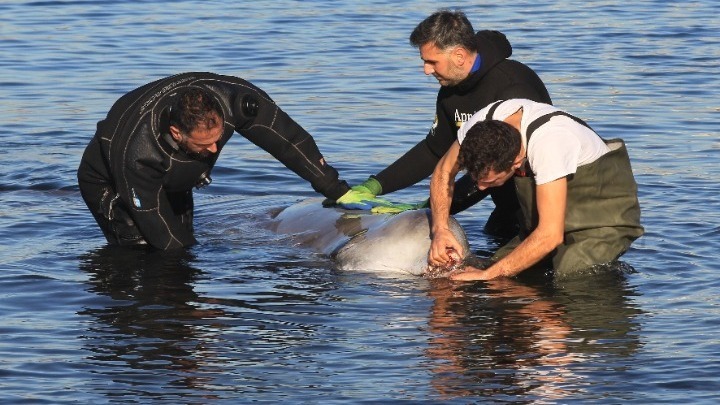The first National Coordinated Network of Observing and Managing Wildlife Strandings will be set up in Greece after an agreement with environmental organizations and scientific organizations, the Environment and Energy Ministry announced on Monday.
The center, a decades-long request, is funded with 1.5 million euros provided by Greek agencies and EU-related funding, and will focus on four types of marine animals: cetaceans, seals, sea turtles, and cartilaginous fish (sharks, skates, rays, and rabbit fish).
It will set up a specialists group for each of the four categories of marine animals, mobile units for speedy response to stranded marine animals, an infrastructure for the emergency treatment and handling of stranded marine mammals, and a registry of all marine animals stranded or washed ashore at Greek beaches with samples searchable on a database.
Signing the joint ministerial decision were the ministers of Shipping & Island Policy (Yiannis Plakiotakis), Alternate Finance (Thodoros Skylakakis), Deputy Environment & Energy (Giorgos Amyras) and Deputy Agricultural Development and Food (Simos Kedikoglou).
“We all remember the story of the small Cuvier’s beaked whale that became stranded in Attica in January 2022,” Amyras said, “and we were all moved by its fight to survive, with our assistance. Today, two years later, Greece has the mechanism and scientific protocols to manage effectively and immediately such incidents, which are unfortunately not rare in Mediterranean seas.”
He particularly said that every year 1,000 sea turtles, 250 cetaceans (dolphins & whales), and 25 seals get stranded or die at Greek beaches. The data he provided was based on information provided by port authorities, the Aristotle University of Thessaloniki’s Veterinary School, the Hellenic Center for Marine Research (ELKEThe), and NGOs.
SOURCE; ANA-MPA






